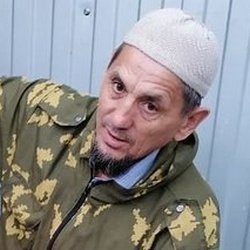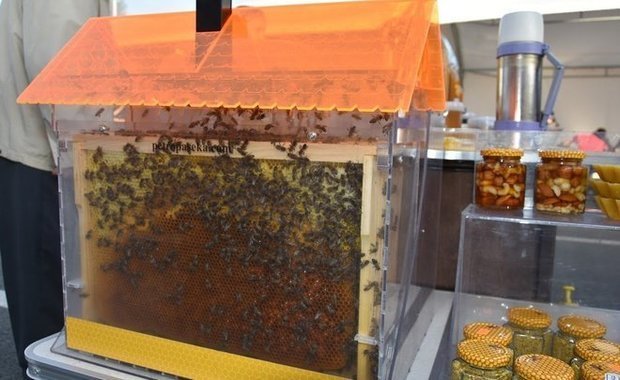'Where there is poisoning — there are 'local oligarchs': mass plague of bees begins in Tatarstan again
Details from Arsk
The heat in Tatarstan is having a bad effect on the beekeeping industry, what is more — on two fronts. Directly — as Tatarstan beekeepers told, due to the hot weather, there is still almost no honey in the hives today, although a year ago, it was already actively extracted. Indirectly, as Marat Minnebayev, the director general of the Department of Aquaculture and Beekeeping of the Republic of Tatarstan State Budgetary Institution, says, it is necessary to treat “certain crops with certain insecticides”, which sometimes lead to mass extinction of bee colonies in apiaries in the neighbourhood. Such a mass plague has taken place in Tatarstan for the third year in a row.
In 2019, according to official data alone, more than 3,000 bee colonies died (beekeepers themselves today estimated the losses of that year at 20,000 bee colonies). The main version is the death from chemicals that farmers use to treat rapeseed fields from pests. In 2020, there were cases of bee poisoning in the Zainsk district. This year, it is already known about cases of bee poisoning in Arsk, but, as it turned out, this is not an isolated case.
In Arsk, bees died at several farms at once. According to the farmers, the insects were poisoned by pesticides from neighbouring enterprises — Severny Sovkhoz and Tashkichu PLC. The representatives of these enterprises stated that they carried out work according to the rules, at night and having warned beekeepers through a Whatsapp group. Such groups were created in 2020 in each district just for the interaction of beekeepers and farmers. There is a Whatsapp group, which consists of beekeepers and personally Minister of Agriculture and Food of the Republic of Tatarstan Marat Zyabbarov, representatives of the industry told. The affected farmers in Arsk confirmed that they had been warned, but it is impossible to “hide” bees in the heat — they will just die from the heat in hives.
As the media drew attention, Severny agricultural enterprise belongs to Mintimer Mingazov. He is the son of the former director general of Vamin, Vagiz Mingazov, now deputy head of the branch of the Russian Agricultural Centre Federal State Budgetary Institution in Tatarstan.

The situation was further complicated by the following. According to Mash Iptash, the commission that came to collect samples allegedly forced to remove the video about the death of bees from the Internet. Commenting on this incident, Minnibayev said that the beekeeper did not apply to the commission after the death of the insects, but simply posted a video on the Network. The commission, which arrived only after that, found out that the beekeeper does not have a mandatory apiary passport, and the actual number of hives (35 of them) does not coincide with what is indicated in the data of the village council (according to the papers — 10). He did not comment on the actions of the commission, but added that the commission examined the apiary.
However, it is extremely problematic to recover compensation for damage without a passport and correct documents, adds Shavkat Khayrullin. But even with the documents, beekeepers still do not always win in courts — for example, commissions do not always take samples correctly. In winter, the members of the commissions are going to be trained, Khayrullin said.

The press service of the Ministry of Agriculture and Food of Tatarstan reported: after publications about the death of bees of the beekeeper in Arsk, a survey of the territory was organised with the involvement of employees of the RGVO, district department of agriculture, departments of Rosselkhoznadzor, and Rosselkhoznadzor Centre of the district, village council, and chief agronomist. Following the incident described in the publications, it was found out that there were more than 30 hives in the apiary, of which partial death was recorded in 5.
'Red zones' for beekeeping
Khayrullin named those settlements in Tatarstan where, according to his information, there have already been problems with bee poisoning.
- In addition to Arsk, cases of poisoning were recorded in Muslyumovo — there, according to Khayrullin, there were problems with thehouseholds of the agricultural firms Avgust and Tugan Yak. The first is part of Avgust JSC near Moscow (which somewhat does not agree with the point about “local oligarchs”), the second is the subsidiary of Chelny-Khleb JSC. Realnoe Vremya failed to promptly reach the management of these companies on their phone numbers.
- There were also poisonings in Tetyushy and Mamadysh — at the same time, in 2019, there were “the most large-scale massacres” in Tetyushy.
- Pestretsy — there has recently beeb a damage, 90 bee colonies died.
- . At the same time, the notification system via the Whatsapp chat in Buinsk did not work, since the toxic substance came from neighbouring Tetyushi.
Khayrullin found it difficult to name the total number of bee colonies that have already died this year.
He also complained that not only bees are dying because of pesticides, but also other representatives of the animal world — birds and hedgehogs. The notification system does not always work correctly — according to him, farmers do not always provide full information about the time or place.
There are also other problems. For example, in Tatarstan (and in other regions), there are no accredited laboratories that could analyse dead bees, and these results could serve as convincing evidence in court. The federal law 'On Beekeeping' never prohibited the use of the most hazardous pesticides of class 1 and 2 (Khayrullin blames the “lobby of farmers” for this — initially such ban was prescribed in the bill), although in fact, such pesticides are still not used in Tatarstan. However, bees are also poisoned by less dangerous pesticides of class 3 and 4 — as Khairullin says, because of inept use.
Bashkir or Tatar
Since last year, there have been conversations in Tatarstan about registering own brand for Tatar honey — neighbouring Bashkiriahas long had such a brand. Dmitry Kryukov, a member of the Council of Beekeepers of Tatarstan, said that Tatarstan honey is no different from Bashkir honey, but the brand 'Bashkir honey' is better known.
“Bashkir honey is on everyone's lips, everyone praises it in Russia. I believe that Tatarstan honey is not worse, because the honey base is the same in Tatarstan and Bashkiria. Whether here or there, linden trees bloom in both regions. The only thing for which the beekeepers and the leadership of Bashkiria should be given credit to — they created the brand 'Bashkir honey'," Kryukov said.
“Good for Bashkiria, but our honey is not worse, wholesalers from Bashkiria also come to us, buy our honey and then sell it here under the name 'Bashkir', but it is no different," Khayrullin revealed the background of honey “traders” in response.

At the same time, the beekeepers added that there are no accredited laboratories in Tatarstan to determine the quality of honey — it has to be taken to Bashkiria. The Ministry of Agriculture and Food of Tatarstan is working on the creation of such a laboratory, beekeepers said.